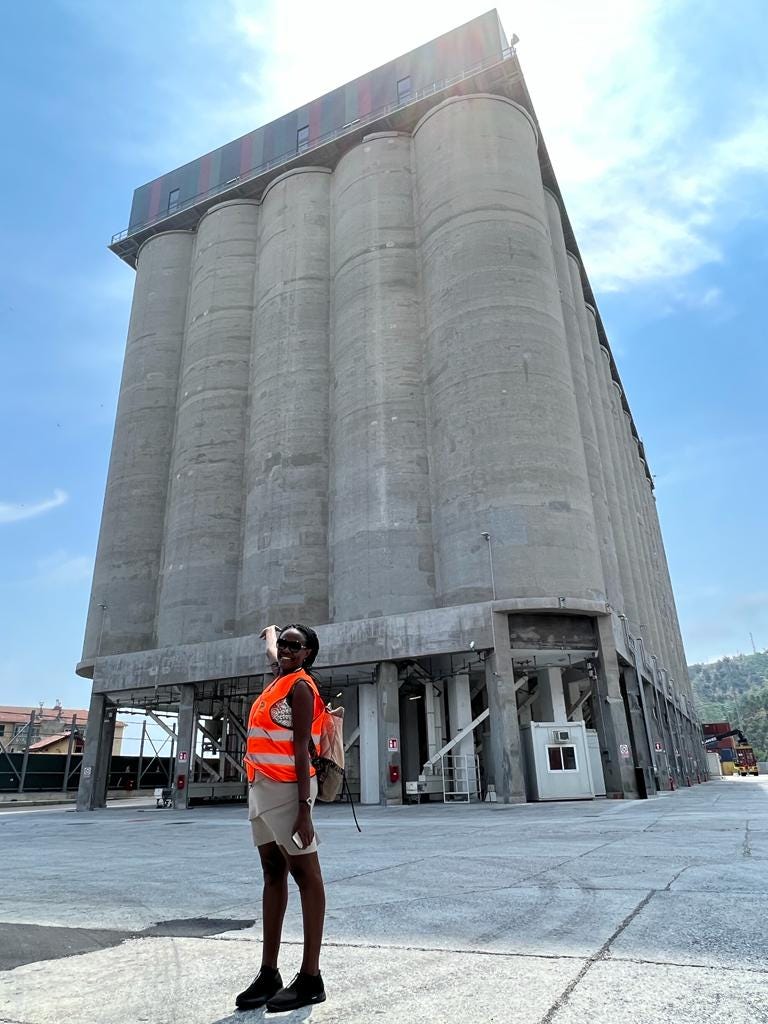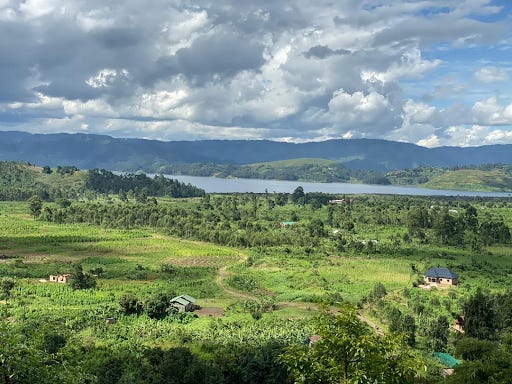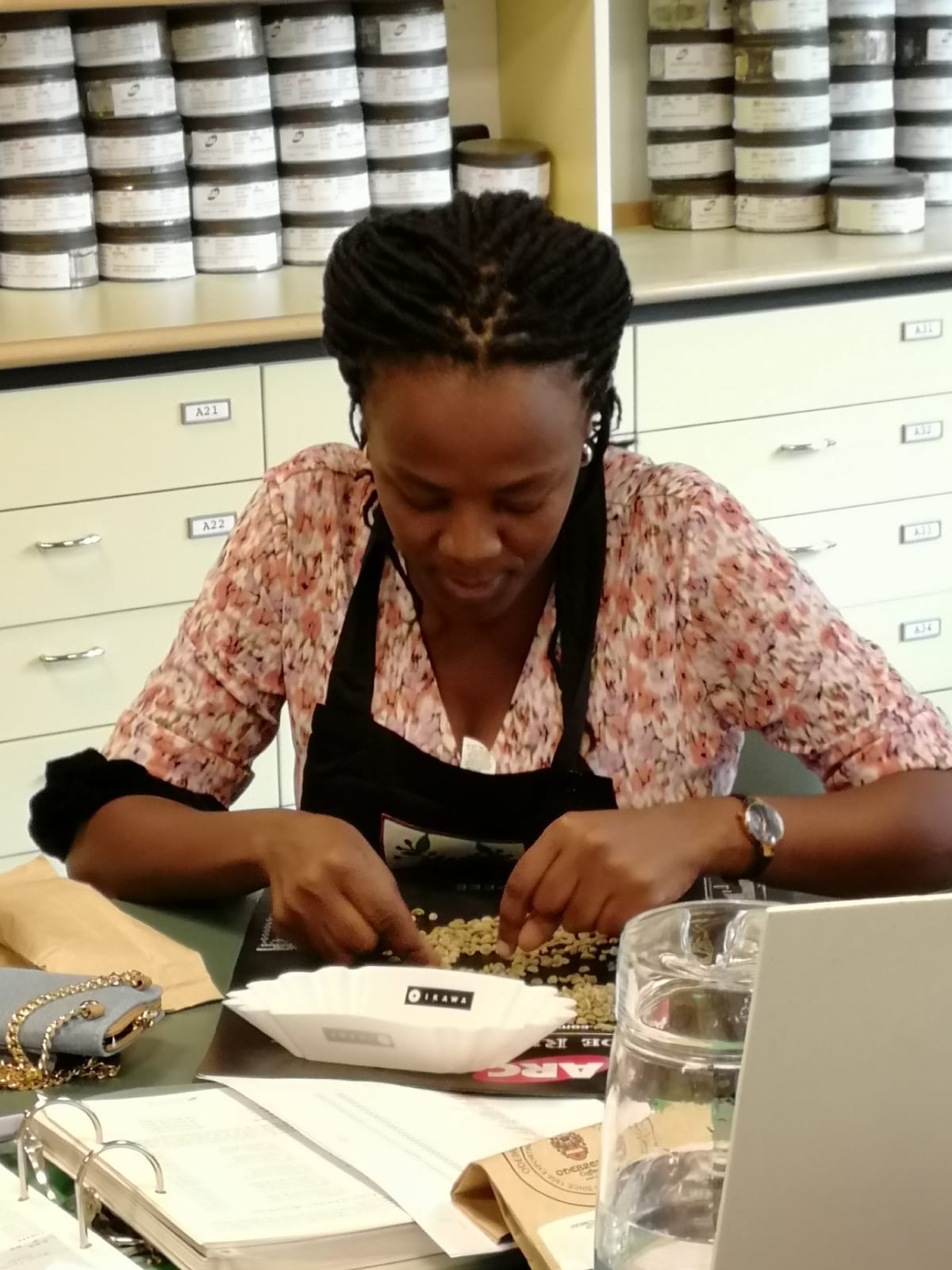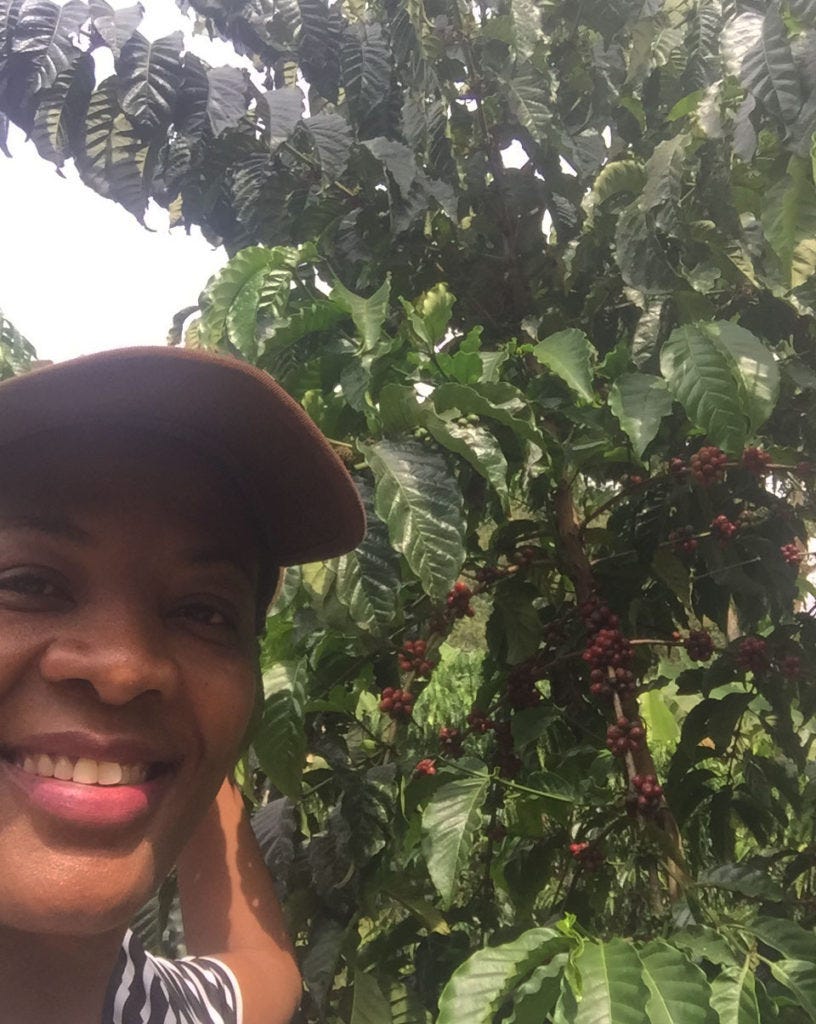“Why are you going to Italy to learn about coffee? When I could teach you all you need to know about it.”
I was having dinner at my parents’ house a few hours before a flight to Italy when my father said this to me. This coffee story had started some months prior to this conversation, at a small restaurant/cafe a few minutes from my own home.
I still remember the little red table I was seated at in the cafe, waiting for Richie to arrive.
He’d sounded harried on the phone about a half hour previously when he’d called to request the meeting. This urgency was difficult for me to understand as it was a Sunday afternoon and everything was in chilled Sunday vibe.
But I would later learn that this happened to Richie a lot. He tended to overbook himself when he traveled to Kampala.
Living in Kisoro, a 9-hour bus trip from the capital, he only came into the city once every three weeks or so. So, he would try to pack the work of a fortnight into the few days he was in the city. Richie had first reached out to me on Facebook, having read a short story that I had written. He was looking for someone to write some reasonably coherent stuff about the different projects that his organisation was carrying out in Kigezi, South West Uganda.
As an organisation that was constantly looking for funding for the social side of their work, he frequently needed well written stories, reports, and even proposals for this. He thought perhaps I could do this for them.
Richie had previously worked in the marketing department of a newspaper in Sudan. A major part of his job was to sell advertising space for the paper.With his brilliance and easy way with people, he had excelled in the role and impressed the proprietor of the newspaper.
However, in 2013, tensions began to mount in the country. By the end of the year, the South Sudanese civil war had broken out. As a foreigner, Richie quickly made arrangements to return to Uganda.
Coming back home, one of Richie's first stops was to check on his mother and visit others of his relatives in Kisoro. Although happy to see her son, Richie's mother had some news to share of the happenings in the village.
She, along with several others of her coffee farmer friends, had decided to cut down their coffee gardens. The reason: The prices that they were offered for the coffee were getting more and more ridiculous. The money they received was not enough to even cover the cost of production.
Relatively ignorant of the coffee industry, Richie still managed to convince his mother and her friends to hold off on this drastic move while he investigated the matter further.
He began by speaking to some people that he knew who worked in the industry. Soon a picture started to emerge which with his keen mind as a marketer he was able to recognise.
The farmers were selling to middlemen who offered them a low farmgate price, and then went on to sell to green coffee buyers who exported the coffee to roasters overseas.
Richie wondered whether it would be possible to not only link the farmers to the green coffee buyers but to also roast the coffee and sell the finished product. After all, as the highest value was at that stage, more money would be available to the farmers for their coffee.
The other issue was the the farmers accepted lower prices in order to take care of immediate needs like medical bills or school fees for their children. Coffee had become the ATM machine which the middlemen fed cash into.
Realising this, Richie concluded that whatever intervention he would devise would also have to take care of community needs that were beyond the business of coffee.
This is how the social enterprise working with coffee farmers in South Western Uganda was born.
I was excited about doing work for the organisation. As excited as I am every time a new thing comes along. At the time, I was not even a coffee drinker and had never really paid attention to it. All I knew was something we’d learnt in High School about coffee being an important cash crop to the country's economy.
Required to write, I immediately started looking into all aspects of the industry, having recognised the inadequacy of my knowledge and looking to fill the gaps. This search would eventually land me into a Masters in Coffee Economics and Science class at the University of Trieste in Italy.
It was about this trip that my father asked: “Why are you going to Italy to learn about coffee? When I could teach you all you need to know about it.”
It is a strange thing but this was probably the first time I got to hear the full story of his family's connection to coffee. He talked about how coffee is the crop that he knows 'through and through' because his family's income was earned primarily from producing it.
But on I went to Italy and while there, experienced the glamorous side of the industry.
Here, there was no tired soil, long days in the sun or the failed harvests of the farmers that I had been working with. Instead there were flavour wheels, roast profiles, sleek brewing technology, global business models, and beautifully designed cafes.
There were men in suits and traders making millions without ever having stepped onto a coffee processing plant floor.
Excelling on the course, I was one of four selected to attend a one-month work placement at a coffee trading house in Milan. It is one of the oldest, established in 1856.
The placement was a bit more of a reality check because the global coffee trade, particularly for the smaller independent firms is not all glamour.
In a way, for me it has all come full circle. I could name at least one person that I have met and spoken to along the entire value chain.
Coffee is about people. And where there are people there are systems, culture, stories and politics.
It is what makes it such a great backdrop.
I think of the conversations that happen while a cup of coffee is present but mostly ignored. Each of those conversations could be had about coffee itself.
Soo many stories I wish I had the skill to tell effectively.
There's the one about the woman who was the best possible choice to take over a massive coffee business but she would not be given the reins because she is a woman.
There's one about the young people who are choosing to abandon the industry and the discussions on parenting children and allowing them to go where you haven't gone even if it is away from the family business.
There's the one about inequalities in wealth distribution and the various theories that could explain this historically and currently.
There's the one about the drama of blatant corruption in the coffee industry in Uganda and what it all says about human behaviour.
And there’s always the one of the hopes and dreams of those who work in the industry in whichever role.
Here’s an interview that I had with Theo who writes Ways of Life about some of the work that I do in coffee.







I am so happy that voices such as yours and Magatte Wade are being heard. The interview was excellent, both informative and inspiring.
Hi Susanna, this is fascinating! I'm happen to find you have a Substack and looking forward to learning about coffee from you!